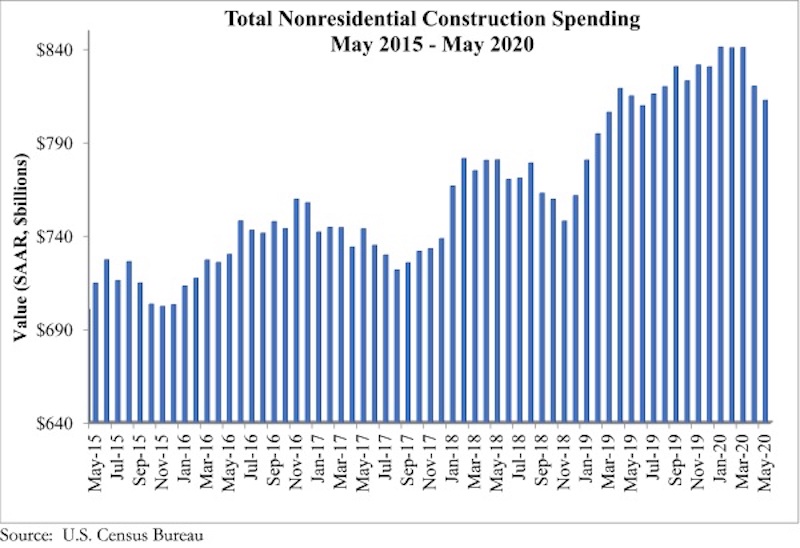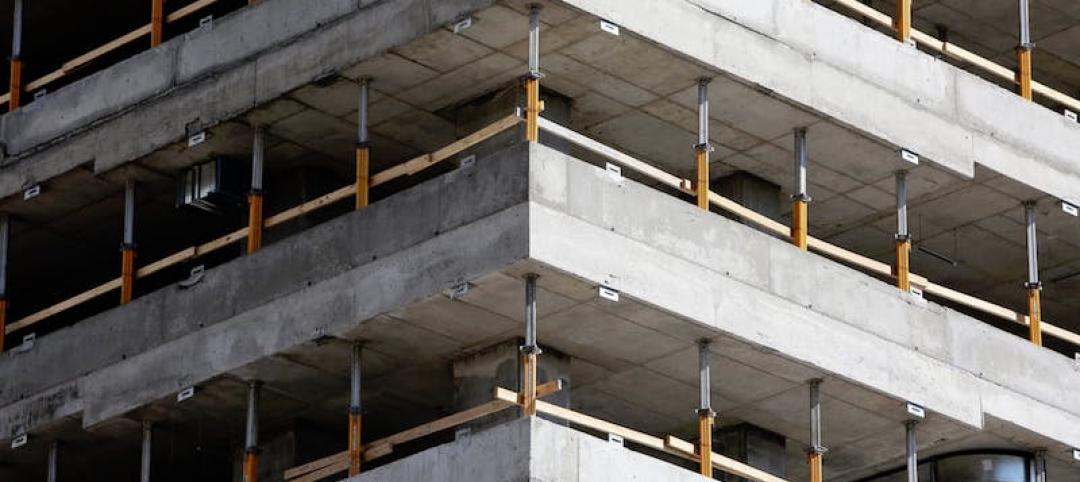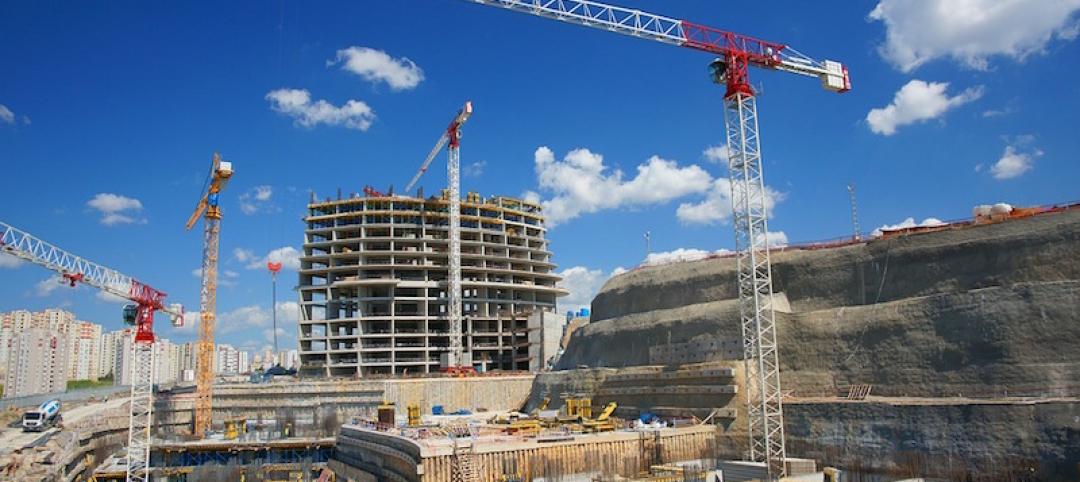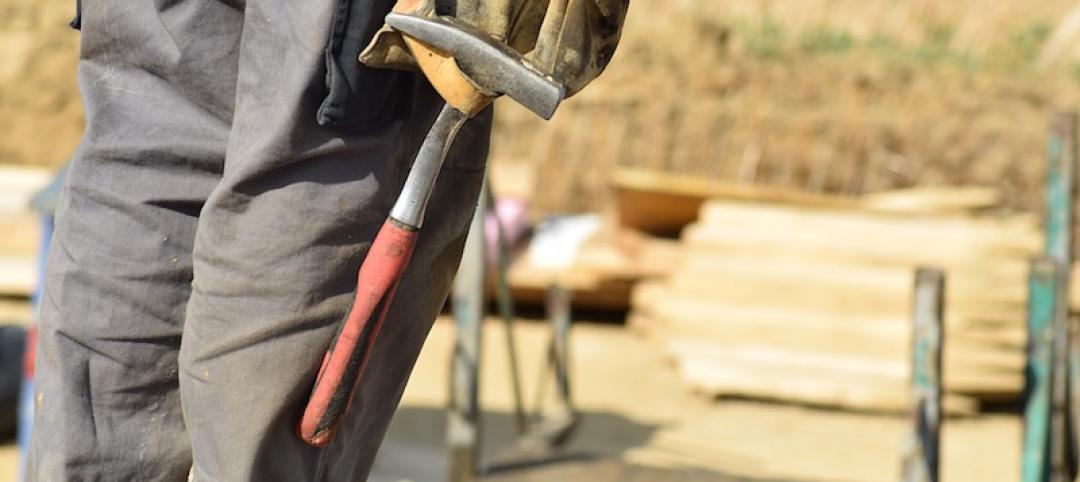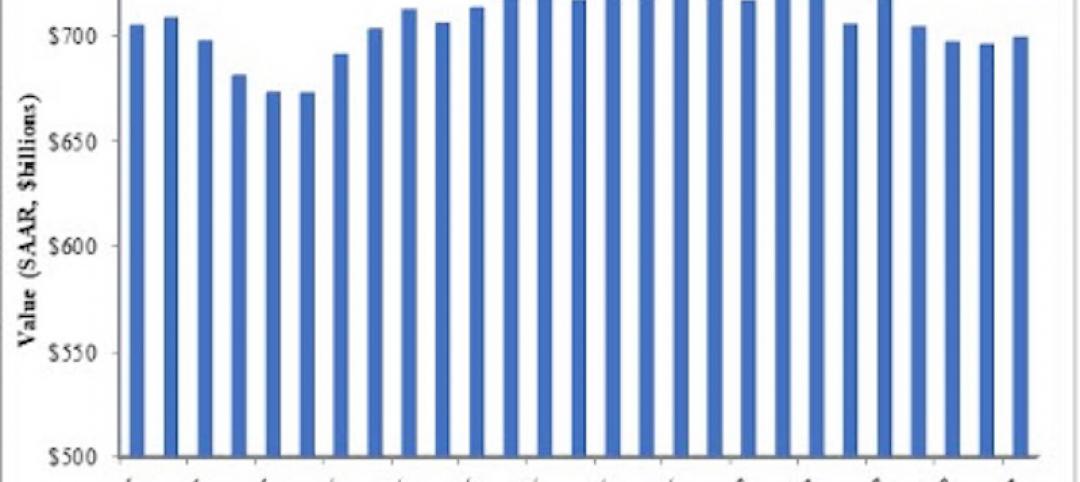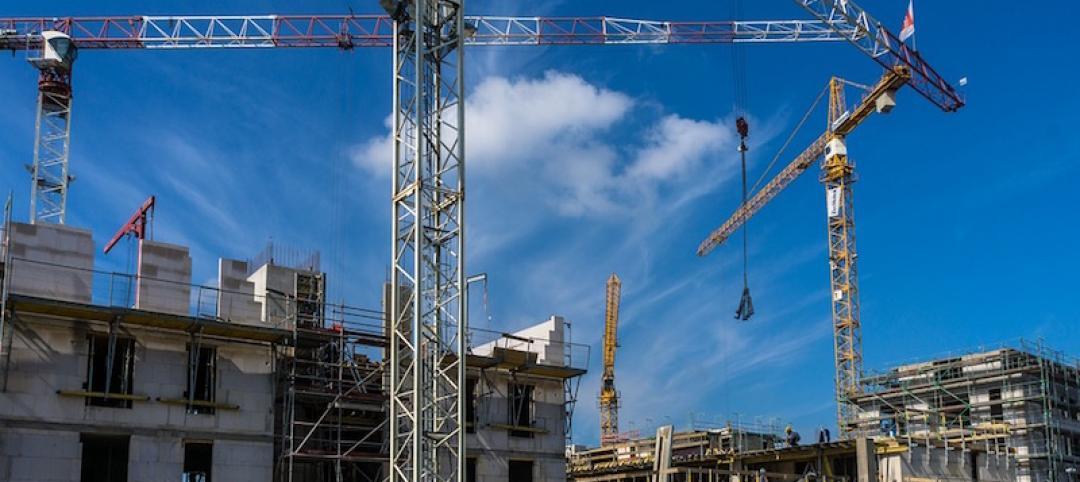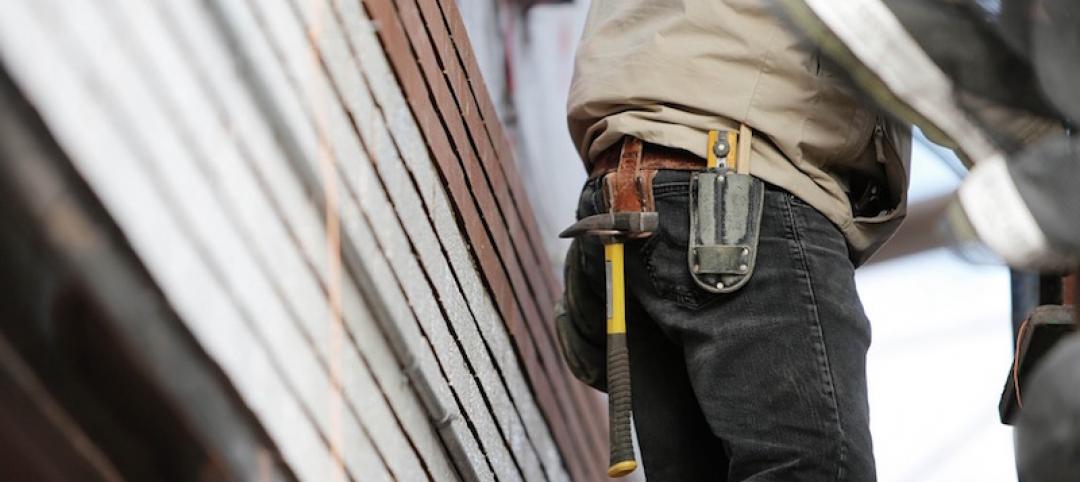National nonresidential construction spending declined 0.9% in May, according to an Associated Builders and Contractors analysis of data published today by the U.S. Census Bureau. On a seasonally adjusted annualized basis, spending totaled $812.5 billion for the month. Private nonresidential spending declined 2.4% in May and public nonresidential construction spending increased 1.2%.
“Certain aspects of today’s data release are precisely what was anticipated, while other elements are rather surprising,” said ABC Chief Economist Anirban Basu. “For instance, the precipitous 5.3% decline in health care-related construction spending is hardly shocking, as many elective surgeries, dental appointments and wellness checkups were postponed, resulting in billions of dollars of losses among medical systems. In addition, many medical systems have experienced large-scale layoffs in an effort to preserve cash balances.
“Other segments negatively affected include lodging, manufacturing and power, which was expected,” said Basu. “A general lack of travel and occupancy has slowed hotel construction. A shrunken global economy and disrupted worldwide supply chains have pummeled industrial construction. And the energy sector has taken a hit from commodity prices that remain significantly lower than pre-crisis levels, truncating demand for new construction.
“What is surprising is the overall stability of construction spending,” said Basu. “In May, nonresidential construction spending declined by less than 1%, which represents a level of stability not enjoyed by much of the balance of the economy. Spending in a number of categories, mostly public, was higher for the month, including highway/street, public safety, transportation and water supply. Moreover, certain construction segments may experience rapid recovery going forward, including health care, manufacturing and power. For now, construction spending data and ABC’s Construction Backlog Indicator, which stood at 7.9 months in May, show that the industry has managed to remain a bulwark of relative stability in the face of ongoing pandemic-induced economic dislocations.”
Related Stories
Market Data | Nov 15, 2017
Architecture Billings bounce back
Business conditions remain uneven across regions.
Market Data | Nov 14, 2017
U.S. construction starts had three consecutive quarters of positive growth in 2017
ConstructConnect’s quarterly report shows the most significant annual growth in the civil engineering and residential sectors.
Market Data | Nov 3, 2017
New construction starts in 2018 to increase 3% to $765 billion: Dodge report
Dodge Outlook Report predicts deceleration but still growth, reflecting a mixed pattern by project type.
Market Data | Nov 2, 2017
Construction spending up in September; Down on a YOY basis
Nonresidential construction spending is down 2.9% on a year-over-year basis.
Market Data | Oct 19, 2017
Architecture Billings Index backslides slightly
Business conditions easing in the West.
Industry Research | Oct 3, 2017
Nonresidential construction spending stabilizes in August
Spending on nonresidential construction services is still down on a YOY basis.
Market Data | Sep 21, 2017
Architecture Billings Index continues growth streak
Design services remain in high demand across all regions and in all major sectors.
Market Data | Sep 21, 2017
How brand research delivers competitive advantage
Brand research is a process that firms can use to measure their reputation and visibility in the marketplace.
Contractors | Sep 19, 2017
Commercial Construction Index finds high optimism in U.S. commercial construction industry
Hurricane recovery efforts expected to heighten concerns about labor scarcities in the south, where two-thirds of contractors already face worker shortages.
Multifamily Housing | Sep 15, 2017
Hurricane Harvey damaged fewer apartments in greater Houston than estimated
As of Sept. 14, 166 properties reported damage to 8,956 units, about 1.4% of the total supply of apartments, according to ApartmentData.com.


